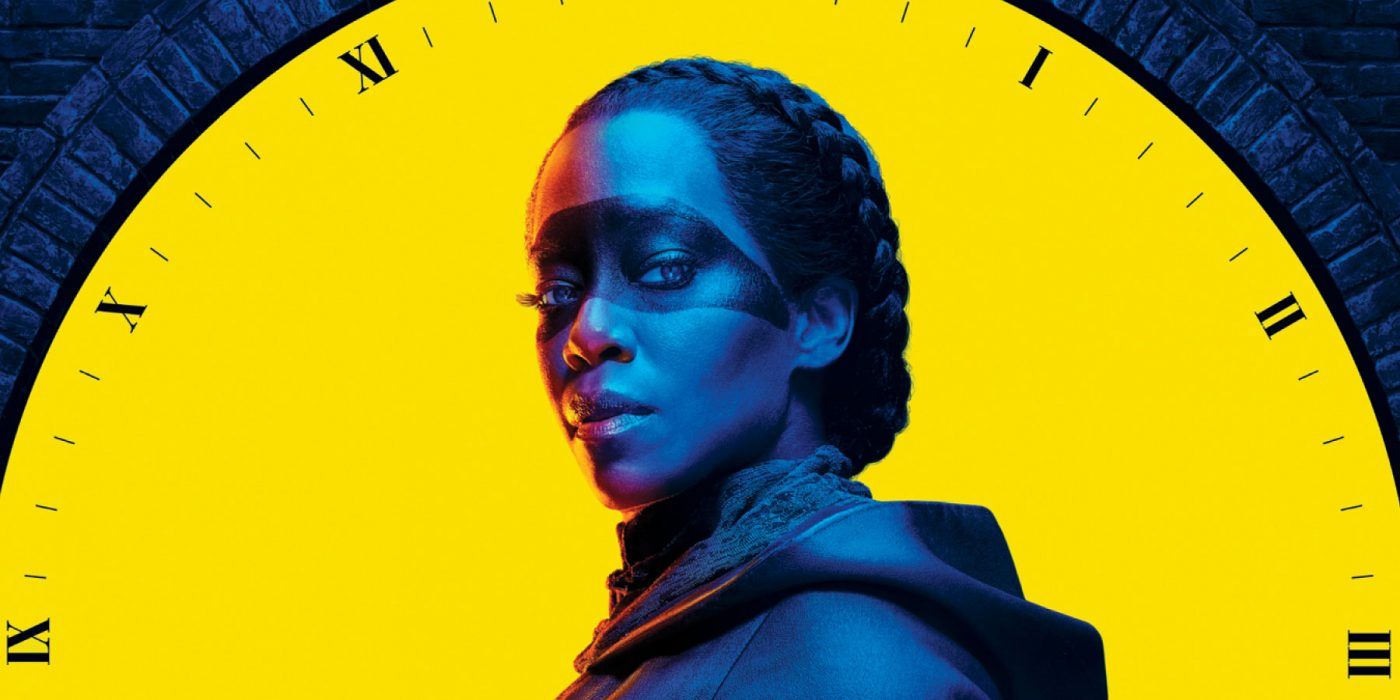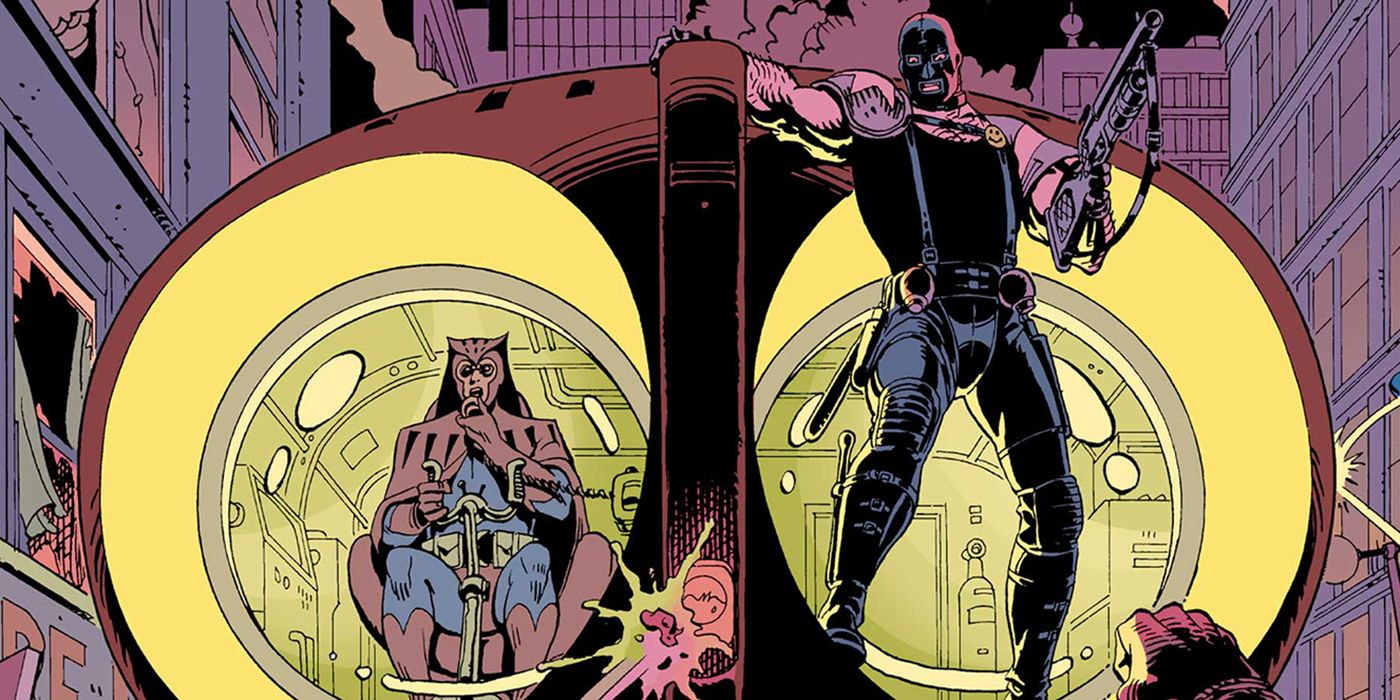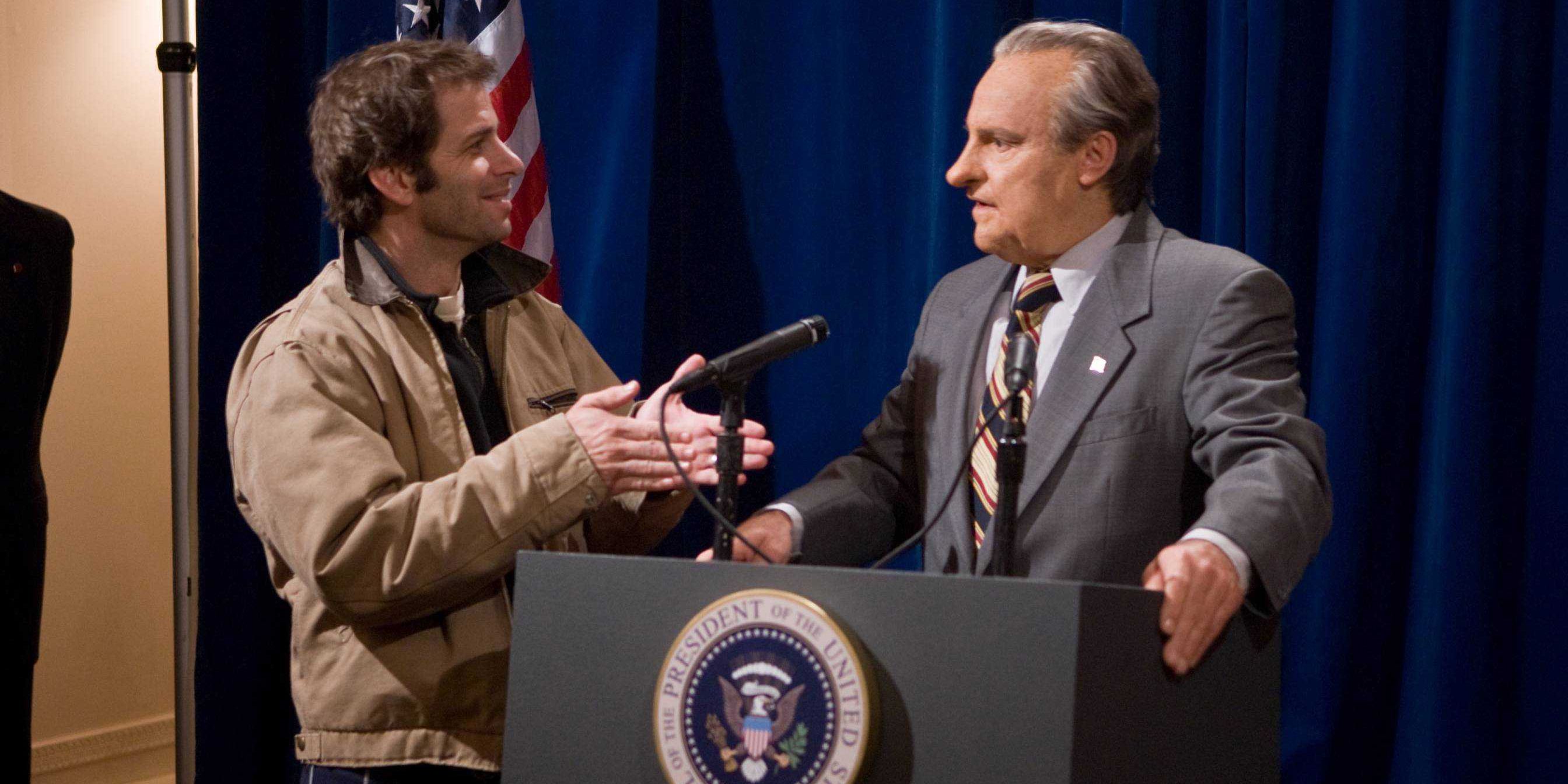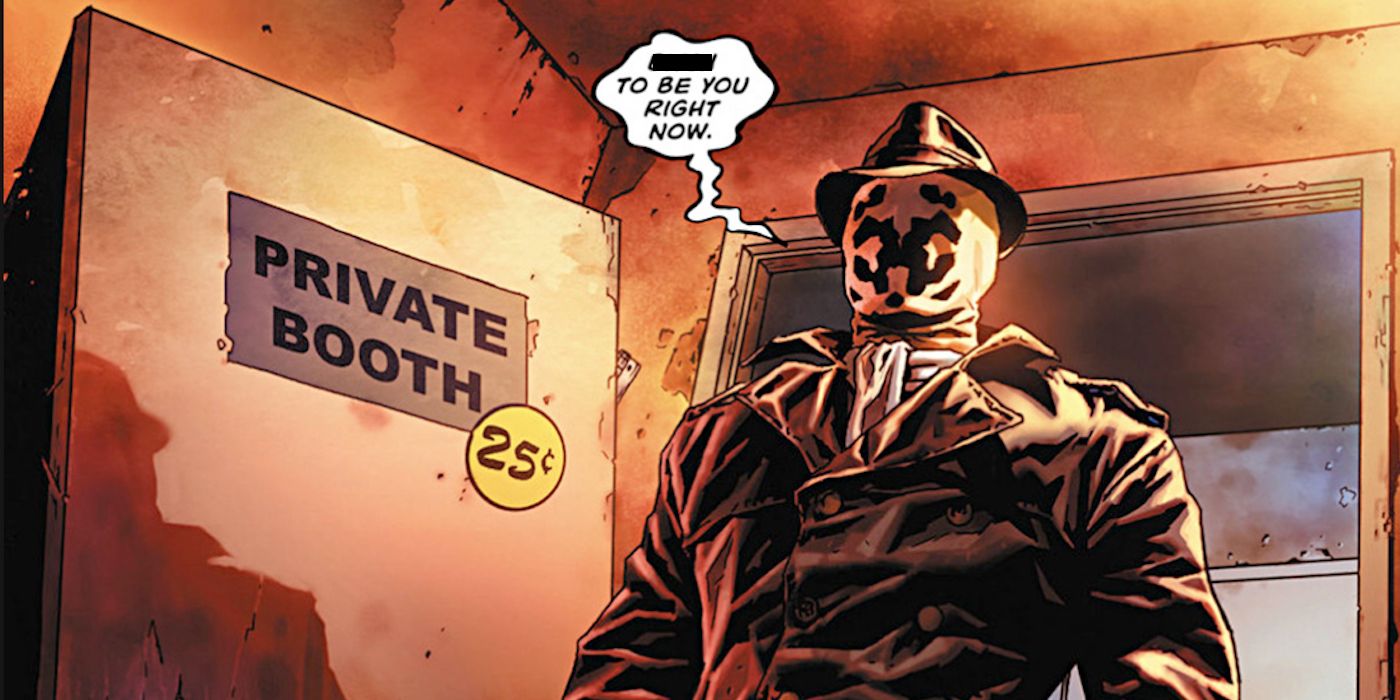Watchmen is returning to the screen in the form of an HBO drama. Alan Moore and Dave Gibbons' seminal series shook up the world of comics with its satirical look of both superheroes and politics. A previous adaptation, Zack Snyder's 2009 adaptation, successfully re-told the story, but many fans felt he failed to capture the nuance of the narrative.
In an attempt to appeal to fans, series creator Damon Lindelof confirmed that his adaptation would "[avoid] moralizing at a time when popular entertainment is terrified of being misunderstood because there’s such a willingness online to accuse artists of bad intentions." Some people celebrated that, as it meant Watchmen would avoid the political rhetoric that disengages so many viewers from a series. After all, Lindelof continued, "Although it is dealing with real issues and it’s meant to generate and provoke conversations and emotions, we have to contextualize that this is fiction."
However, the fans celebrating Lindelof's decision to avoid moralizing or addressing issues directly is missing the point of Watchmen: Without biting social and political commentary, Watchmen simply isn't Watchmen.
"Get Politics Out of Comics!"
Many viewers don't want to engage with a creative work politically. This isn't anything new. If you go online in any open forum about superhero media -- or even the comments section of an article like this -- you will find people arguing that comics have become overly political.
People who argue that politics in media is bad usually point to at least one of three reasons. The first argument is that superhero fiction is supposed to be escapist and they don't want to think about reality when engaging with it. The second reason is that they fear they will disagree with a title's politic perspective, which might make them feel like their political views are a problem that needs solving. And the third reason is that political discourse will muddy the narrative, taking away from what they came to see: action.
All three of these opinions are valid in and of themselves, and indeed, some stories do get caught up in communicating a message rather than providing an entertaining story with memorable characters. The problem is that some superhero media that people believe are "overly political" are, in actuality, not political at all.
Movies that feature a cast of under-represented people, such as Black Panther, Wonder Woman and Captain Marvel, are often accused of being political. Most often, the "political" message comes down to the simple argument that minorities can be heroes, too. Yet, for some people, the very existence of LGBTQA characters in media is seen as "political."
In many respects, it makes sense that some filmmakers would set out to avoid politics. They want to avoid alienating a portion of their potential audience. Films like Venom, Aquaman and Spider-Man: Far From Home avoid political discourse very deliberately and successfully. But Watchmen is different. Moore's comic is overt political satire without a hint of subtlety.
The Politics of Watchmen
Most people know Watchmen as a "dark superhero story," but they might overlook the intense criticism of Cold War America the story contains. With the comic becoming further removed from the era of its inception with every year, people forget that the Doomsday Clock ticking closer to midnight with every chapter presented a real fear to countless Americans: the fear of nuclear war with the Russians.
The comic offers direct criticism of the Nixon administration, suggesting that, had Nixon won the Vietnam War, America would have become a borderline police state with a literal God exacting punishment on anyone Nixon objected to. The heroes themselves criticize the various viewpoints of the American people, from Rorschach's black-and-white extremist, uncompromising perspective to Night Owl's passive indecision as things spiral out of control.
Dr. Manhattan becomes the embodiment of the nuclear deterrent that kept the world "safe." In reality, nuclear weapons offered no real protection, just a promise of mutually assured destruction. The moment that deterrent fell away, whatever country maintained its nukes would immediately move to launch them. This offered a cynical view of human tribalism: when given a chance, we will engage in destructive behavior.
Even in its silliest moments, Watchmen provides political satire. Ozymandias' entire goal in the original comic is to avert war by creating a common enemy for all mankind. That common enemy is a giant alien squid monster. While this might seem fairly ridiculous and comic book-y to modern readers, it's actually clever political satire. It shows how people become afraid of the "boogieman," a threat bigger than themselves, and unify to strike against that alien, unknown threat.
To the Americans and Russians, the space alien is a perfect substitute for the cultural alien. It is the other. Moore presents a reality: to readers, there is no real difference between the Russians and alien invaders. They're both equally unknown, equally dangerous, and as presented in media, equally fictitious.
Most overt of all these ideas, however, is that violence is ultimately pointless. None of the fighting stops anything. All the war and fighting does not add anything to the characters' lives. If anything, it only destroys. The first Night Owl dies in a pointless, random brawl.
Why Make Watchmen Not Political?
One core reason many fans might not want a political Watchmen show is because they have misinterpreted the comic's characters over the years. For example, what was Moore's intention when creating his characters? Rorschach is essentially Steve Ditko's character The Question in a real-world setting. The Ayn Randian philosophies present in that character are applied to an obsessed individual who has been pushed past the breaking point by man's cruelty.
Rorschach is a tragic, self-destructive character. Yet, a subset of fans don't see this. To them, Rorschach is just a bad-ass vigilante hero. He's Batman unchained. He might even be an ideal to strive for, rather than a cautionary tale.
Satirical fiction is often misinterpreted by a vocal portion of its fan base -- and these are often the people who are being derided by said work. Take the film and book Fight Club. The story, which satirizes the often-toxic lifestyle of men who can only find purpose in tribalism and machismo, is widely loved by the very people it criticized. These individuals take its messages at face value rather than seeing the irony in the plot. Likewise, Watchmen, which presents deliberately pointless violence committed by people damaged by society, is often beloved by people who don't understand the satire.
In some respects, this is reminiscent of many of Watchmen's spin-off narratives. They take recognizable aspects of Watchmen, and play them straight. Before Watchmen and Doomsday Clock take Watchmen iconography and remove it from the original's intense political atmosphere to create escapist fiction. They ignore, either accidentally or deliberately, that Watchmen isn't escapist. It's harsh political satire.
By avoiding political commentary in Watchmen, Lindelof is appealing to the fans who don't understand the point of Watchmen. By avoiding an explicit stance, he will create a series that lacks teeth. It will be the antithesis to Alan Moore's original vision. By avoiding real-world commentary, Lindelof is squandering a terrific chance to use the superhero genre as a means to explore real-world issues that need addressing.
HBO's Watchmen might offer some terrific superhero entertainment. However, Lindelof's comments about the series seem to indicate it might not be a true addition to the Watchmen story.
Developed by Damon Lindelof, HBO's Watchmen stars Jeremy Irons, Regina King, Don Johnson, Tim Blake Nelson, Louis Gossett Jr., Yahya Abdul-Mateen II, Tom Mison, James Wolk, Adelaide Clemens, Andrew Howard, Frances Fisher, Jacob Ming-Trent, Sara Vickers, Dylan Schombing, Lily Rose Smith and Adelynn Spoon. The series will premiere Oct. 20.




